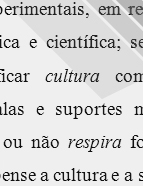

................................
A fundamental theme of his essayism, culture, imagology, and the projective and prospective labyrinth of hetero- and self-representations, "a critical discourse on the images we have forged of ourselves" (O Labirinto da Saudade, 1978, p. 52), just like images "ideas have their shadows" (Poesia e metafísica [Poetry and metaphysics], 2002, p. 70), is moulded into a kind of "existential historiography", as he mentions (2000), which is resistant to apodictic justifications: "my reading of Portuguese culture, in general, of its meaning, of its functioning, has little to do with a sociological reading. The symbolic is invisible to the sociological lens, at least as long as sociology remains implicitly and explicitly tied to the Durkheimian idea that 'social facts are things' and as such susceptible to 'scientific' reading" (Lima, Existência e filosofia: o ensaísmo de Eduardo Lourenço [Existence and philosophy: The essayism of Eduardo Lourenço] 2008). The rejection of the place of truth, and this the spirit of heterodoxy, implies the prior "rejection of perspectives that claim to hold the truth about it" (Gil & Catroga, O ensaísmo trágico de Eduardo Lourenço [The tragic essayism of Eduardo Lourenço], 1996, p. 17), a tragic aporia of a community that, through intellectual mediations and figurations, attracts clients yearning for orthodoxy.
7. Historiography of culture, or culture as historical research. After the pioneering Curso Superior de Letras (1858-61), the Republican reform that established the Faculties of Arts (III-1911) redefined the objective impetus in historiographical studies. For the first time, conditions were created for the vast and scattered branches of humanities not only to establish their own disciplines (Philological, Classical and Modern Sciences; Historical Sciences; Philosophical Sciences, subsuming Psychology) but also to define logical and methodical bases for the epistemic and pedagogical connections. The plan of Verney, revisited by L. Mouzinho de Albuquerque (1823), found ground to flourish. It is only possible to outline the movement in its most clear and prominent stages of development: it was Joaquim de Carvalho (1892-1958) who first and most clearly formulated the methodological question raised by the history of culture, by calling for analytical and hermeneutical transdisciplinarity, reaching the most demanding historiographical level, that of the very episteme for its clarification and the most solid philosophical training for its discussion.
